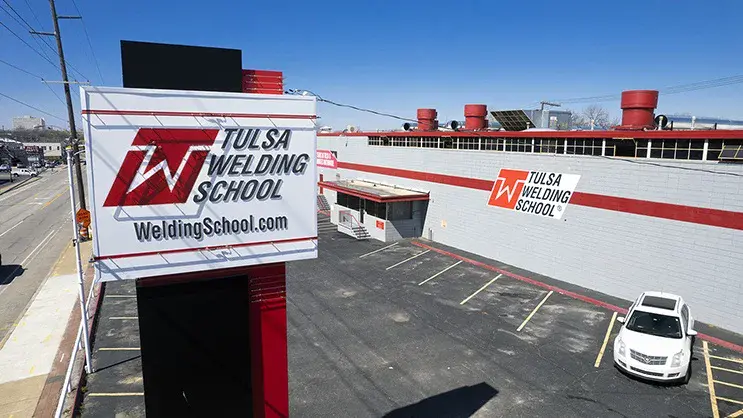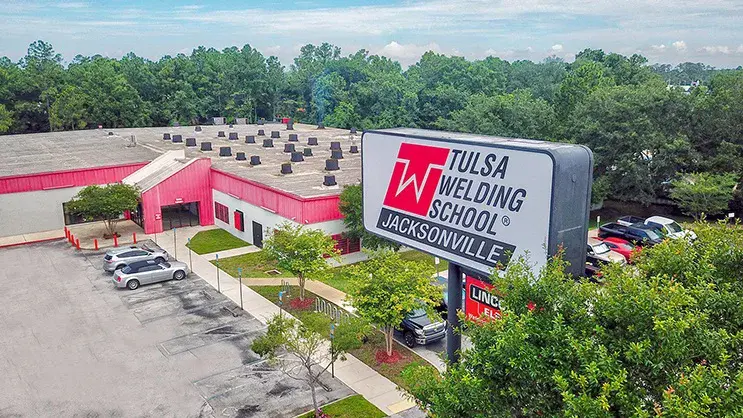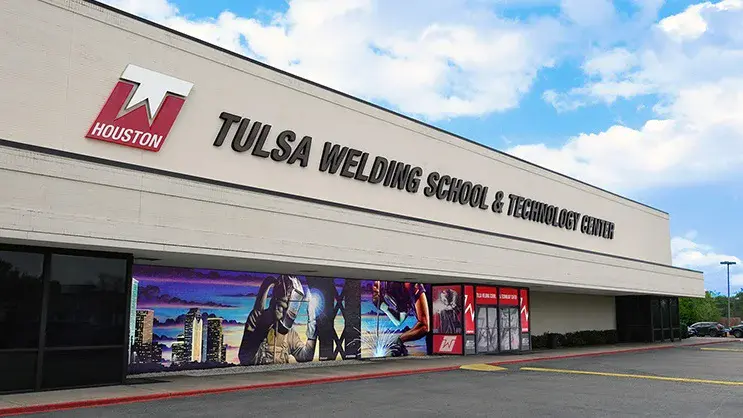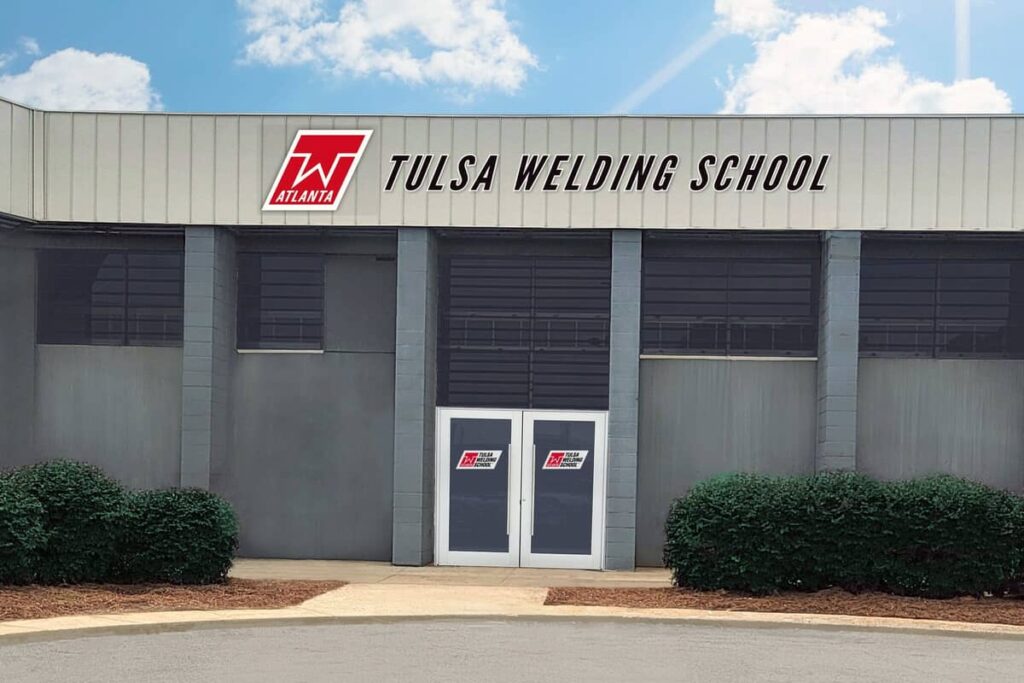TWS is a Great Training Option for Everyone
Learn more about how we can prepare you to advance your career.
Whether you’re enrolled in a welding training program at a trade school or are just starting to dabble at home, getting a good starter welder is important to producing clean, strong welds.
As one of the larger purchases you could make, you may have a lot of questions about welding machines:
-
- What is the best welder for beginners?
- What is the easiest welder to use?
- Do different welding processes use different welders?
- Do different projects need different welders?
Those are all great questions that will get answered. But, first let’s touch on some of the things you’ll want to consider before making a beginner welder purchase.
4 Considerations for Choosing an Entry Level Welder
Fortunately, with so many types of welders to choose from, it’s definitely possible to find a good fit
Have You Considered a Career in the Skilled Trades?
Fill out the form to recieve a no obligation info packet.
When comparing beginner welders, consider the following factors:
- Your skill and experience level
- The complexity of the welding project or application
- The type of welding process(s) needed for your project
- Your budget1
Focus on the basic features you need for welding school or start your first project.
How to Choose Your First Welder
Let’s see how putting the considerations above into practice can help you with it. Keep in mind that it may take more steps—or fewer—for you to select the right machine for your needs.
Step 1: Match Your Skills to a Welding Process
MIG, Stick, and TIG are the most common welding processes, and each one requires a different type of machine setup.1
Deciding which process you plan on learning first can help you determine the type of welder you need.
Beginner MIG Welders
MIG welders are among the best types of welders for beginners, as they’re designed with a wire electrode on a spool that is fed at a pre-selected speed through a welding gun. As a semi-automatic or automatic process, gas metal arc welding (GMAW or MIG), is the easiest to learn.
MIG Welder Benefits for Beginners
- Simple to learn
- High welding speeds
- Cleaner welds2
Stick Welding (Intermediate)
Compared to other welding processes, it may take longer to get the hang of shielded metal arc welding, or stick welding.
The name of this process can give you a clue as to what it entails: a flux-covered metal electrode is used to carry the electric current from the machine to the metal workpiece. As it burns, the flux emits a gas to shield the weld pool, which later settles to form a protective slag over the work. Meanwhile, the metal electrode melts into the joint, strengthening it.3
Stick Welder Benefits
- Works on a range of metals
- Indoor and outdoor use in wind
- Effective on rusty or painted materials1
TIG Welding (Advanced)1
Gas tungsten arc (TIG) welding requires advanced welding skills. One reason for this is that TIG welding is a manual process in which you hold the torch with one hand and feed the metal filler rod into the weld puddle with the other.4
TIG Welder Benefits
- Precision welds
- Foot control to adjust heat input
- Higher-quality, better-looking weld beads1
Step 2: Align Welding Process with Project
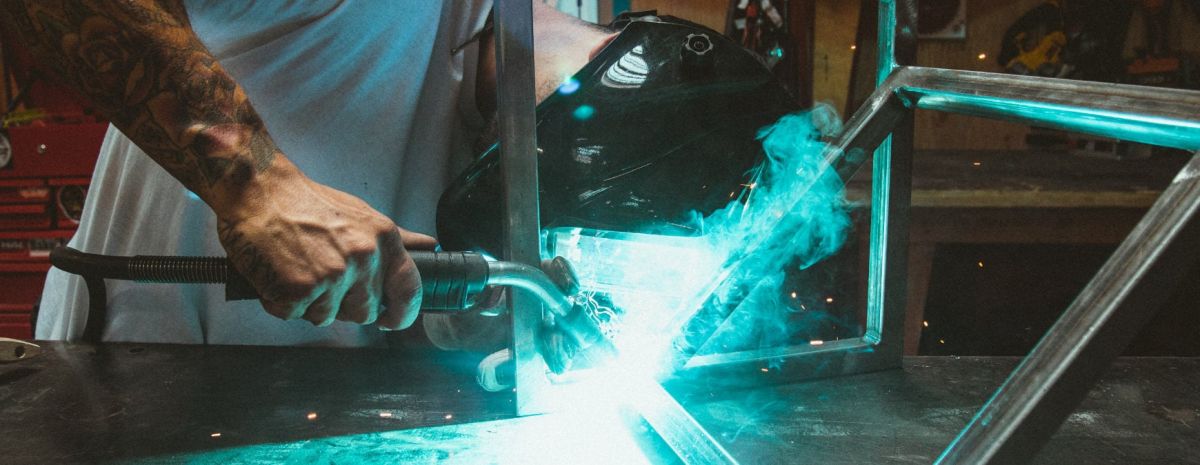
In addition to skill level, you’ll also want to think about what types of projects you’ll be working on. Each welding process (and its specific welder) has unique applications.
MIG Welding
- Automotive and trailer repair
- Lawn and garden equipment repair
- General fabrication and repair
- Metal fabrication
- Art and sculpting5
Stick Welding
- Farm and ranch equipment repair
- Construction (structural welding)5
- Assembly of temporary structures
- Jewelry making6
TIG Welding
- Automotive assembly.
- Shipbuilding
- Aircraft welding
- NASA welding6
Step 3: Determine which Welder Fits with Your Budget
Once you’ve figured out which type of machine you need, it’s time to shop around for the best welder model that best fits your budget.
Be sure to factor in the costs of all the other welding equipment you’ll need when putting together a budget, such as the costs of the welding helmet, jacket, welding gloves and other essentials.
It’s a big decision. Put some thought into it and take your time.1
Up Next: Choose a Welding Helmet
Anyone in the field will tell you how important wearing a welding helmet is to keep you safe in the classroom or on the job site. Check out our post on How to Choose a Welding Helmet for guidance on selecting another critical piece of equipment. Interested in welding school? Learn more about the Welding program at TWS.
1https://www.millerwelds.com/resources/article-library/buying-your-first-welder-a-practical-informative-guide-for-doityourselfers
2http://welderstation.com/different-types-of-welding-processes/
3https://www.cromweld.com/stick-welding/
4https://weldingpicks.com/tig-welder-works-and-when-to-tig/
5https://www.millerwelds.com/Training/PresentationsQuizzes/IntroToWelding/Welding11/presentation.html
6https://astromachineworks.com/different-types-welding-applications/
This blog has been labeled as archived as it may no longer contain the most up-to-date data. For a list of all current blog posts, please visit our blog homepage at https://www.tws.edu/blog/


